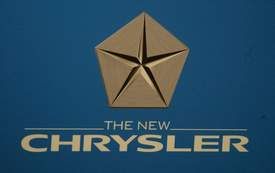The ever pedantic, ever pessimistic blog “The Truth About Cars” is at it again. Making its life blood predicting the demise of American automakers, the “Truth” is now claiming that Cerberus’s real reason for buying Chrysler was to sell it to Canadian auto parts maker Magna. As proof, it cites the settlement between Chrysler and the UAW and the decision of Magna to strike a deal with the Canadian Auto Workers.
Huh?
Magna is the auto parts supplier that caused a shut-down at several Chrysler plants within the past month because the body parts it was supplying were so shoddy that they couldn’t be used. Chrysler ran out of parts. Magna had to pay an undisclosed sum in penalties for the screw-up.
And it’s Magna that just saw its controlling and founding family sell a big chunk of the company to a Russian figure tied to the Russian mafia and to Russian premier Vladimir Putin, the Al Capone of the East. Oleg Deripaska is the Russian crook who has taken a big position in Magna, at about the same time he acquired 5% of GM’s outstanding stock. The GM VEBA deal can be viewed as a way of neutralizing his influence with that company by giving the UAW more power than it otherwise might have had. The CAW deal with Magna probably doesn’t have the same implications because the founding Stronach family was in on the deal to sell to Deripaska. But, no one has ever suggested that Deripaska can be trusted to do anything honestly.
A deal to sell Chrysler to Magna would be, in the current circumstances, a deal to sell the company to Deripaska. Granted, Deripaska might be interested. But why would Cerberus be interested in selling to him?
They wouldn’t.
The “Truth” has been betting for months that Cerberus would “flip” Chrysler – fix it up enough to sell it at a profit before the bottom dropped out. But Magna is sufficiently familiar with Chrysler to know the condition of the company. Moreover, Deripaska has enough money, or access to enough, that he could have simply bought Chrysler directly, had he really wanted it.
He would have had no reason to let Cerberus get in there and be the middleman.
Some auto industry analysts believe that Russia, financed by its oil revenues and operating with a completely corrupt government, intends to elbow its way into the Western European auto market, particularly the German manufacturers. That they might be interested in the American market, as well, is suggested by Deripaska’s investments in GM and Magna.
But the notion that Cerberus is going to sell Chrysler to Magna is far-fetched ludicrous. For the deal to make sense, Magna would have to pay more for the company than did Cerberus. Were it willing to do that, it would have done it when Chrysler was for sale. Even if the idea is that Cerberus sells off the U.S. operation and keeps the rest, it makes no sense. The rest isn’t worth all that much, but it is one of the few things that gives Chrysler something of a long-term future in a world market. To think that Magna would be willing to buy only the U.S. operations – and at a profit to Cerberus – is fantasy.
The bottom line is as simple as it is obvious. Cerebus has no impetus to sell Chrysler until it has made it profitable. Once it’s made it profitable, it has no impetus to sell, either – absent a desire to go public at a very nice price.

